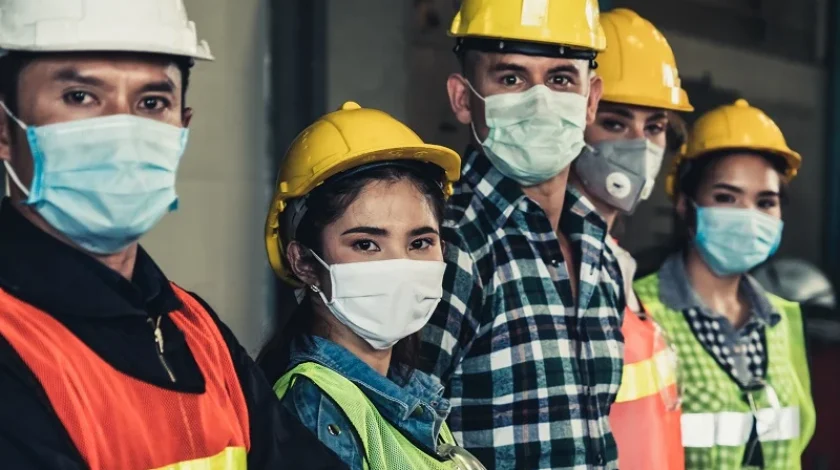The NSW Government has issued a public order stating that from today, 19 July 2021 work at construction sites across Greater Sydney (including the Blue Mountains, Central Coast, Wollongong and Shellharbour) is not to be carried out unless urgently required.
This is effectively a blanket ban on construction work across Greater Sydney as part of the NSW Government’s response to the recent spread of COVID-19 Delta strain.
The Public Health (COVID-19 Temporary Movement and Gathering Restrictions) Amendment (No 9) Order 2021 indicates that the exceptions to the construction pause includes work urgently required for the following purpose:
- to ensure the safety or security of the construction site,
- to deal with environmental risks,
- to maintain and ensure the integrity of critical plant, equipment or assets, including partially completed works, that would otherwise deteriorate,
- to receive deliveries of supplies that would otherwise deteriorate,
- to maintain public utilities,
- to ensure the safe operation of existing transport infrastructure,
- by or on behalf of NSW Health in response to the COVID-19 pandemic,
- because of an emergency.
The Order also indicates that no one is to enter a construction site in Greater Sydney other than to carry out the above urgent works.
At this stage, the construction pause is said to end on Saturday 31 July 2021.
It is a criminal offence to breach the Order, with individuals facing up to six month imprisonment or an $11,000 fine for breach the Order, whilst companies may be fined $55,000 and $27,500 each day they remain in breach of the Order.
Key Impacts
It is likely that there will be a significant number of contract administration issues that will flow out of this construction pause.
It is important for contractors to remember to issue extension of time requests promptly, and in accordance with any relevant contractual provisions to minimize the risk of claims for damages, or liquidated damages.
If a delay to works is likely to affect your completion date, is important to identify the impact of the construction pause and communicate that accordingly. It will not be enough to simply blame the construction pause for delays to works, particularly if those delays were caused by a number of other factors.
Principals should exercise extreme caution if they elect to issue a suspension notice under a contract.
Parties to construction contracts should carefully consider their contracts, or seek advice, in relation to whether their contract has provisions that contemplate this situation (eg pandemic relief clauses etc).
Please contact us immediately if you require any assistance with understanding the impact of the construction pause on your project, with preparing any contractual notices, or to better understand how to limit the risk of any claim for liquidated damages because of the delay.














